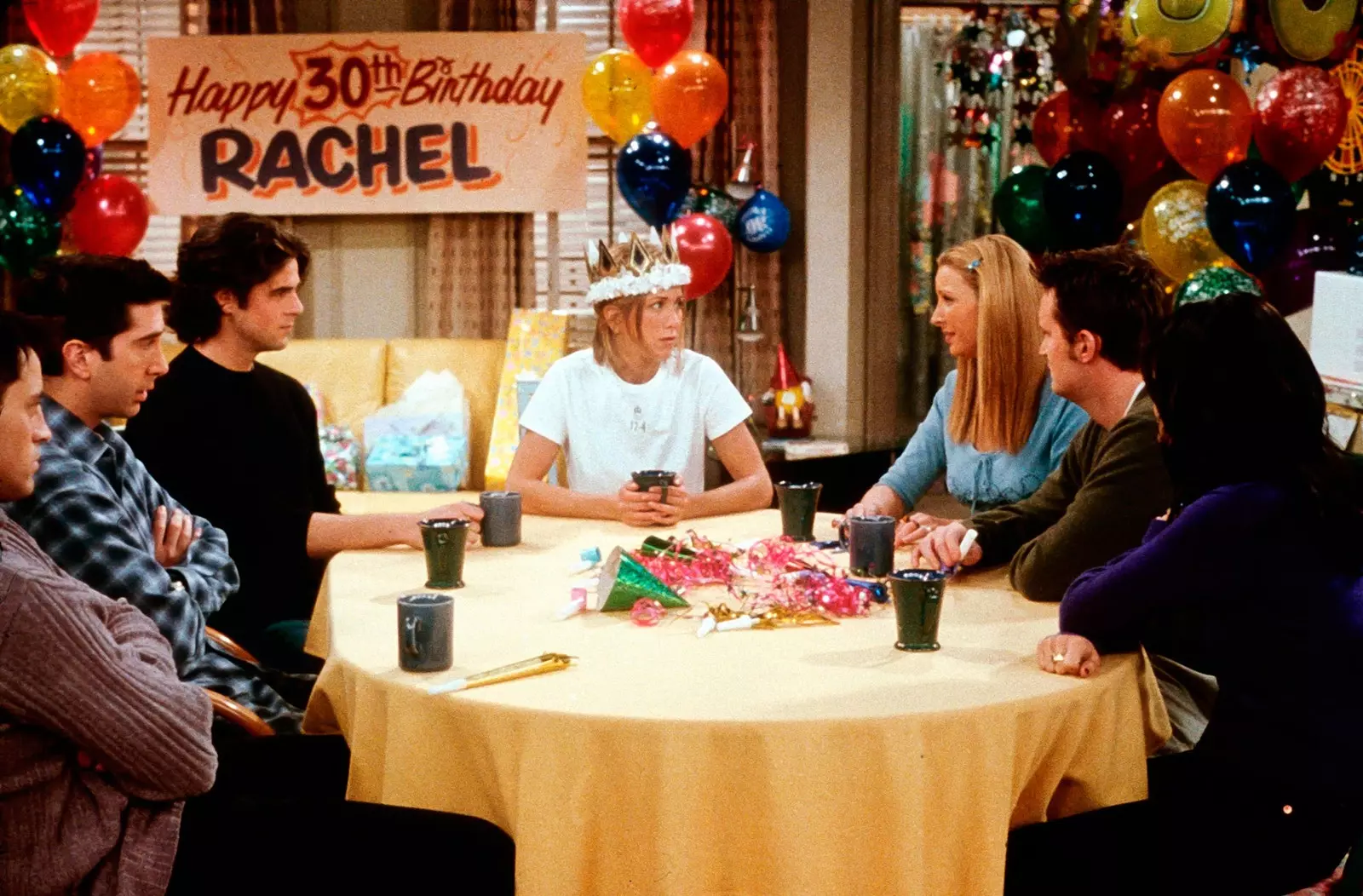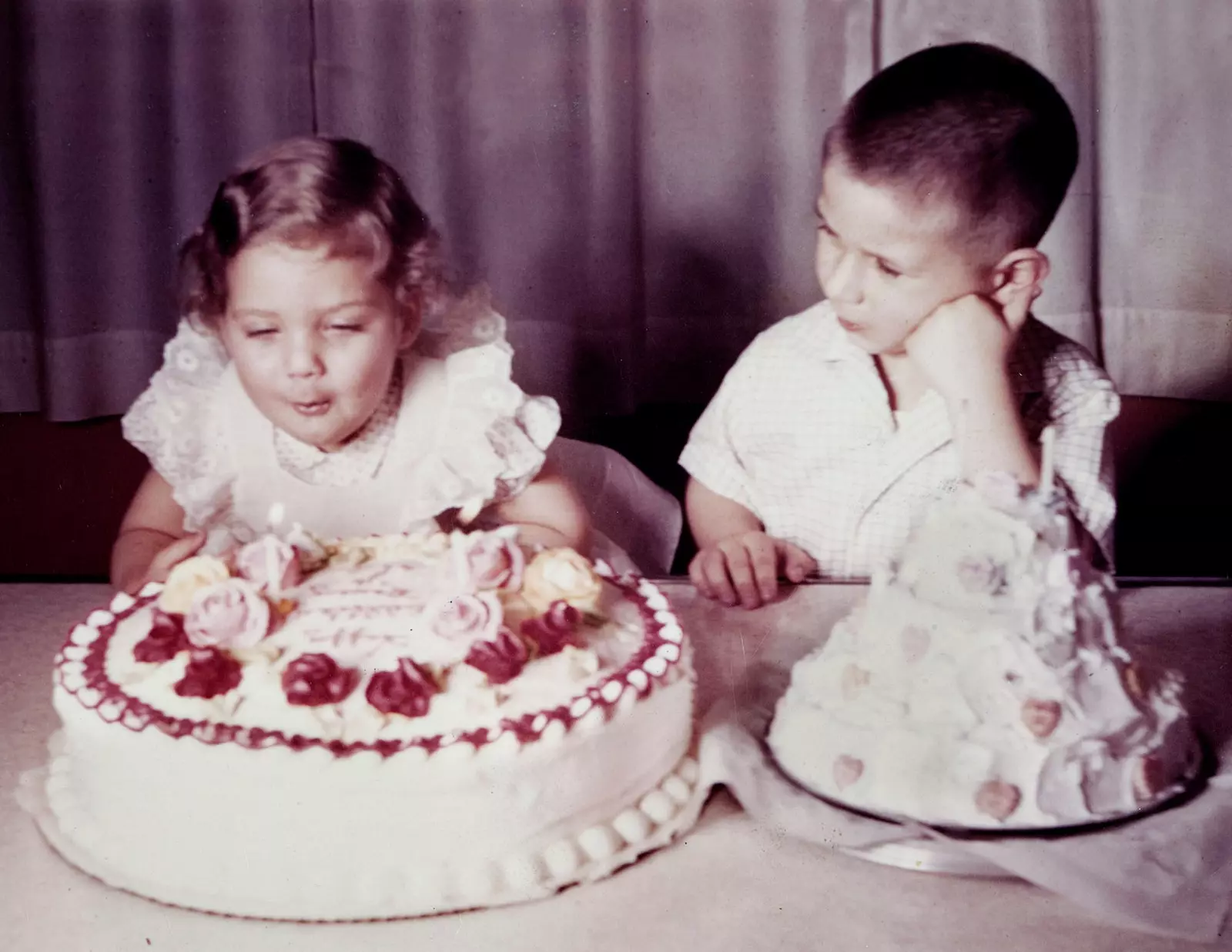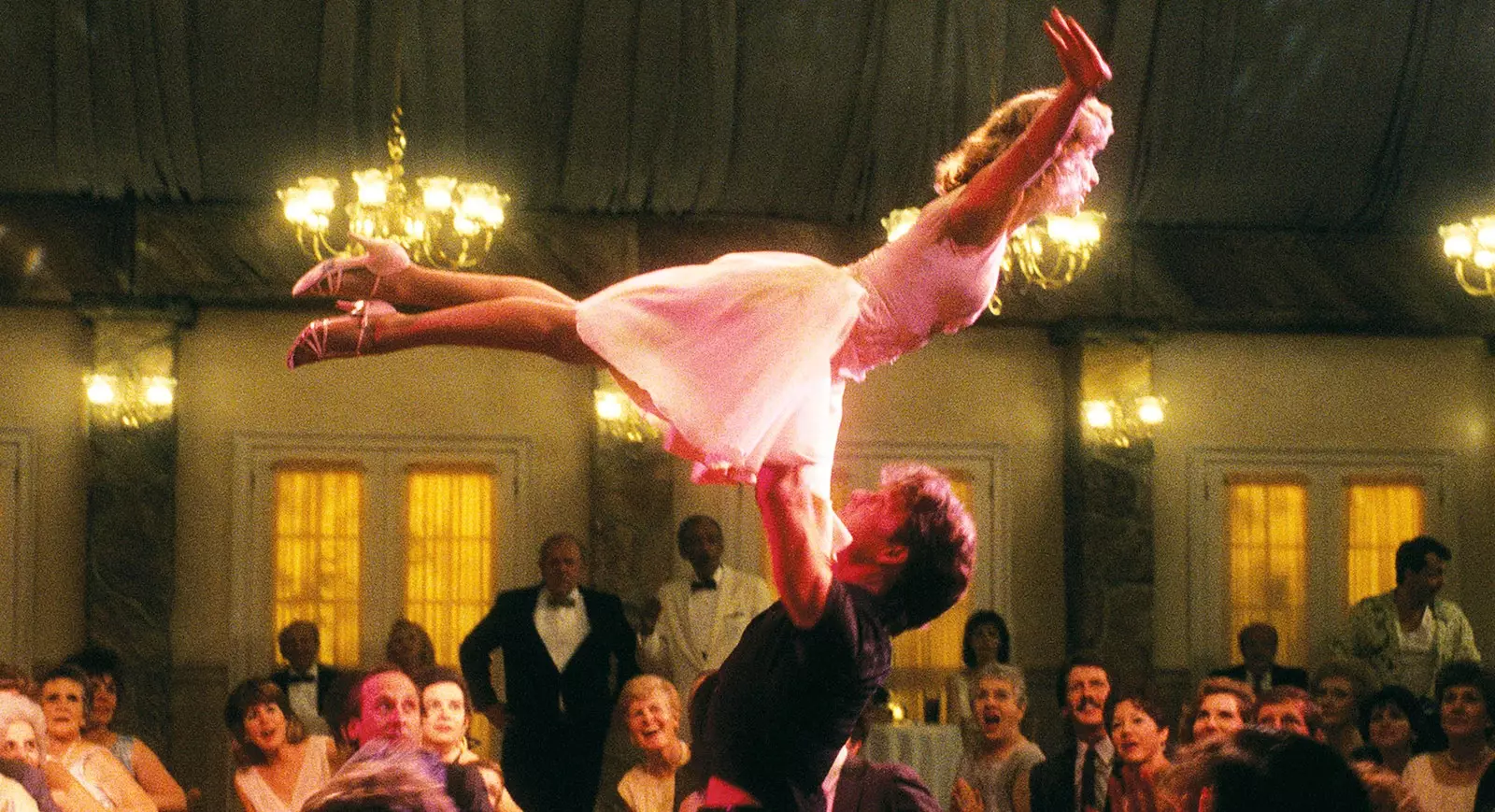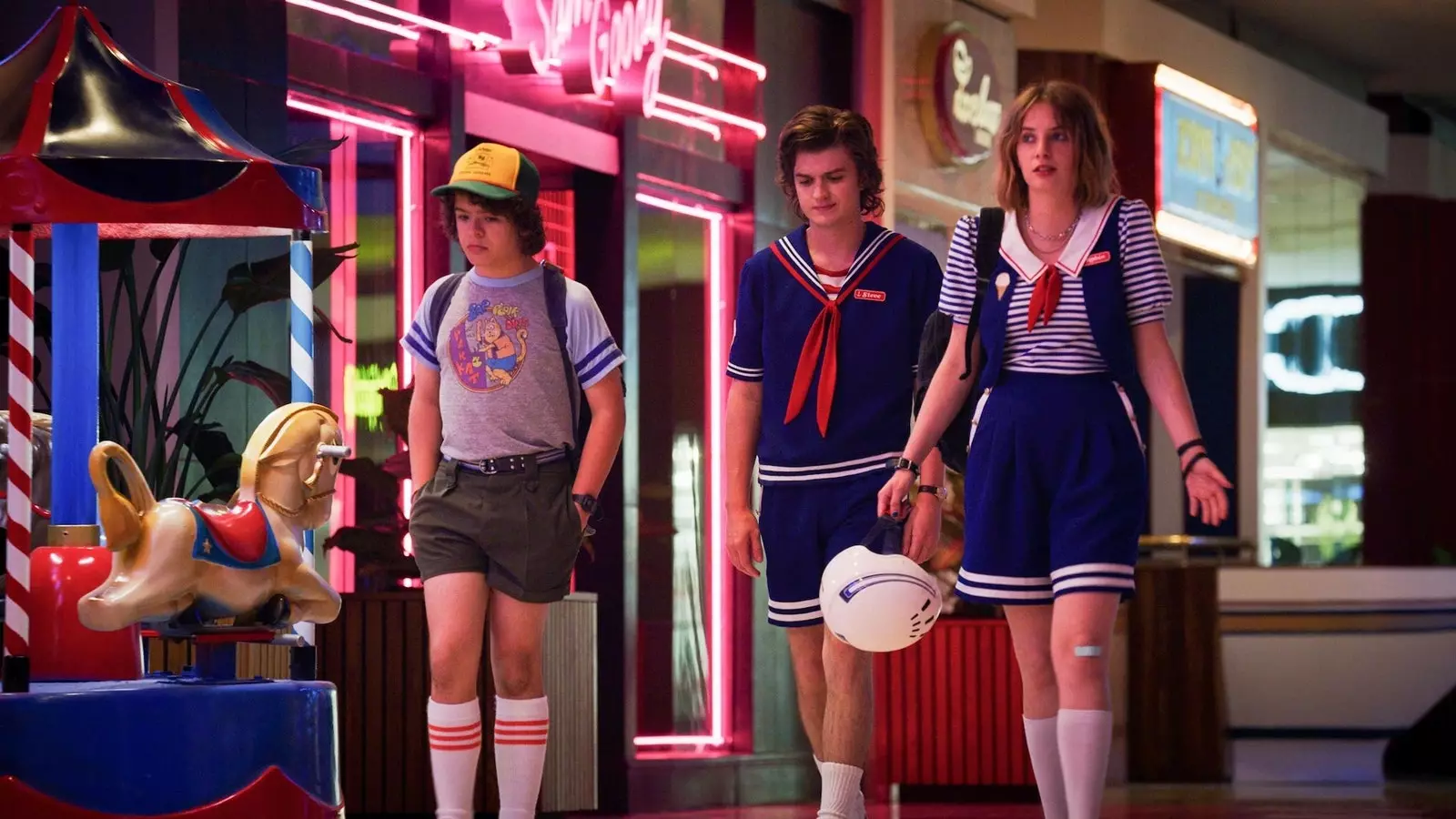
Why is the psychology of nostalgia invading our daily lives during confinement?
It is likely that during these weeks of confinement at home, you have experienced a real trip to your most forgotten self either through books, series, emotions, memories or acts that you believed buried in the depths of your being.
are you rereading that juvenile saga What captivated you so much during your adolescence? Have you become fond of the Playstation? have you subscribed to Disney+? Are your favorites on Netflix teen series or reality shows without a big complex plot behind it? are you going back to those guitar lessons or dusting off the photo album?
The reason for this 'regression' is directly related to the feelings of uncertainty, fear, anxiety and bewilderment that the majority of the population is experiencing in this health crisis that has forced us to stay at home for weeks. It is just then that the nostalgia psychology It begins with its work to make our day to day a little more bearable and joyful.

Why is the psychology of nostalgia invading our daily lives during confinement?
THE JOURNEY TO THE PAST BEFORE THE PRESENT SITUATION
We must start from the basis that our lives are constantly evolving and, therefore, are not static. It is the experiences that we have had over the years that change our brain conditioning both thoughts and our own behavior.
But there are certain times when we feel stuck and without any progress as has happened during these weeks of confinement. To this, we must add that it is a stage in which we experience situations with high doses of stress and anxiety that not only affect the mental health of the present, but also the long-term future.
That's where it comes into play regression to the past as a defense mechanism : “This means that on many occasions help us go back to the past and remember stages and happy moments ; let's say we return to those stages of well-being to better cope with the current situation and gain momentum . Our brain seeks to unconsciously deal with this discomfort and resorts to a defense mechanism that allows it to achieve a balance”, tells Traveler.es the psychologist and sexologist Judith Viudes.
For his part, the psychologist Sergio Garcia Morilla Specialized in Clinical and Health Psychology and director of the Psicosalud center in Tenerife defines regression as “a defense mechanism of the psychoanalytic current proposed by Sigmund Freud for minimize the emotional impact of a problematic situation in which the person 'supposedly' returns to an earlier stage”. Before continuing, it is important to emphasize that 'regression' as such in current psychology does not have scientific evidence , so his theories are mere speculation. That said, at present we can speak of a nostalgia psychology to refer to that trip to the emotional and personal past.
Etymologically speaking, nostalgia itself comes from the words νόστος (nóstos) which is equivalent to 'return' and the suffix -αλγία (-algía) meaning 'suffering' or 'pain'. “Research in psychology tells us that it occurs much more frequently than the majority of the population believes and that what usually triggers these nostalgic situations are negative feelings and in particular, loneliness ; therefore, it is not strange that in situations of confinement in which we are more absent from social relationships with family and friends increase that feeling of loneliness and trigger that nostalgia ”, comments Sergio García Morilla.
We went from that initial feeling of shame to feeling comforted, protected, encouraged and even happy . This is how nostalgia gives us back what we yearn for so much in a positive way.

Why is the psychology of nostalgia invading our daily lives during confinement?
ANY PAST TIME WAS ALWAYS BETTER (OR NOT)
Looking back and evoking good memories does not mean that our adolescence or childhood was not full of bad times, but that our brain prioritizes the positive over the negative . "Many times, the brain 'discards' information that is not good for us or is not useful . There are inhibitory brain mechanisms that allow certain memories to be subdivided. During these processes, there is an activation of the frontal area and less activation in the hippocampus area, critical for memory . to put it in some way, our brain protects us ”, indicates Judith Viudes.
“Most of the memories we have are stored in a positive valence in which we keep more good aspects of the past than negative and when we remember these we do generating a result known as the redemption effect that it is a species in which the memory rewrites in terms of individual or personal growth the harmful events that have happened to us. Therefore, although initially they are negative, in the end they end up being positive”, comments Sergio García Morilla.
During the quarantine we are experiencing a permanent stand-by state that we have to deal with. To this must be added fears such as the risk of contagion, the possibility of losing your job, the stress of teleworking from home with children ... The problems of sleepiness, anxiety, anger, rage, or sadness are installed in our day to day. "And precisely for this reason, our brain looks for memories that give us that spark that triggers our endorphins and makes us feel good," suggests Judith Viudes.
PSYCHOLOGY OF NOSTALGIA: A MARKETING STRATEGY AND A GROWING BUSINESS
Brands are aware that nostalgia generates sensations that beat inside us r and there are many that use strategies linked to it that do not have an expiration date and that are a success in terms of advertising or marketing. Whether through clothing, movies, series, books, eras, video games... they manage to make the consumer feel special by evoking the past and producing positive feelings in order to sell that product.
Pleasant and satisfying memories s with which you will want to consume said purchase and in which you travel to adolescence or our childhood. A connection between the product and the person also known as retrobranding or regression marketing.
You just have to take a look at the netflix catalog during this confinement to realize that the streaming content platform is one of the most expert in playing with the minds of its customers. Outer Banks, I never, Three meters over the sky, Riverdale either Elite They are titles that have been a great success in the last month of April, without counting the rest of the proposals that have been in it for months or years and that are classics that are already part of our list of favorites such as Surprise Princess, Grease, Stranger Things, Clueless, Forrest Gump, Dirty Dancing...

Paquita Salas: she is nostalgia for that TV that no longer exists, that is no longer made
Like Netflix, we find the rest of the services such as Movistar +, Amazon Prime, HBO... and of course the long-awaited Disney +! The latter came into our lives at the beginning of the quarantine, specifically on March 24 after advancing its release date a few days due to user requests.
And the remakes of Mulan, Beauty and the Beast, The Little Mermaid, Aladdin either Cinderella with flesh and blood characters? Make no mistake, they weren't intended for younger kids but for the entire generation between 20 and 40 years old who grew up with the original titles.
LET YOURSELF BE EMBRACED BY NOSTALGIA
It is shown that resorting to nostalgia during confinement is healthy as long as we keep in mind that we are in a fleeting moment , let us be aware of reality and do it to disconnect from the present: “nostalgia is not bad in itself, it is a mechanism that your body has to better deal with a negative situation through direct contact with external agents, which evoke us or they remember those most pleasant moments and make us cope better with this situation”, suggests Sergio García Morilla.

Stranger Things IS nostalgia. Even for a United States that we have never lived... but that we know thanks to cinema and television.
Although, as Judith Viudes recalls, it can also be time to look to the future instead of the past : "it's great let go, stop and re-connect . But it can also be a good opportunity to reinvent yourself, reconsider, learn and look for alternatives. That is to say, I can go back to the past at times and fully enjoy it, but it is not about staying stuck in yesterday, but also about deal with the present and do introspection”.
Luckily, whether for better or worse, we have enough time during these weeks that we still have ahead of us to bet on both options. The key lies in not demanding too much of ourselves and doing what we really want at each moment of the day. And you, do you know what's on today?
